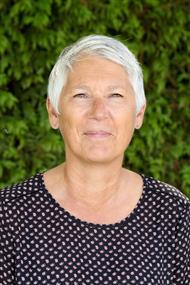Not Criminally Responsible: not a get-out-of-jail-free card

On the contrary, people who are found not criminally responsible due to mental disorder (NCRMD) are more likely to be detained in custody, and for longer periods of time, than those found criminally responsible for similar offences.
“There is a lot of stigma and misunderstanding when it comes to people who are found NCRMD” - Dr. Tonia Nicholls.

“Our prior research suggested that people view an NCRMD finding as a get-out-of-jail-free card," said Dr. Tonia Nicholls, a distinguished scientist with BCMHSUS and professor of psychiatry at UBC. "What we set out to do in this study was to directly address those assumptions and misunderstandings.”
Nicholls says researchers in B.C., Ontario and Quebec compared people found NCRMD over a five-year period with people who were convicted of similar offenses in the criminal system. The study controlled for factors such as age, race and sex in order to provide an ‘apples-to-apples’ comparison.
The findings were published in January in the journal Frontiers of Psychiatry.
“What we found was that contrary to widely-held misconceptions that the forensic system lets people get off easy, in fact individuals found NCRMD experienced higher levels of restriction than those convicted in the criminal system,” said Nicholls.
Specifically, the research team found:
- People found NCRMD by the courts are 3.8 times more likely to be detained than convicted offenders, and 4.8 times less likely to be released from detention;
- One year after a verdict, 42 per cent of NCRMD cases were still in detention, compared with 1 per cent of their convicted counterparts;
- One year after a verdict, 73 per cent of NCRMD cases were still under the purview of review boards, while 41% of convicted offenders still had legal supervision at that time.
Sandrine Martin, lead researcher for the study at the Institut national de psychiatrie légale Philippe-Pinel in Quebec, said public discourse around NCRMD rarely includes the restrictions placed on clients following a verdict.
“The NCRMD defence is often presented as advantageous for the accused,” said Martin. “But it must not be forgotten that individuals found NCRMD remain under judicial control which can be very restrictive, as shown by the results of the study."
Not criminally responsible in British Columbia
In B.C., people who are found NCRMD by the courts, or those who are found unfit to stand trial due to mental disorder, fall under the jurisdiction of the BC Review Board. The Review Board is an independent tribunal that provides legal oversight for the treatment and supervision provided to NCRMD cases.

Most often, people in these circumstances are treated by BCMHSUS at Forensic Psychiatric Hospital (FPH) in Coquitlam, or in a BCMHSUS Forensic Psychiatric Regional Clinic. Dr. Connie Coniglio, chief operating officer, complex mental health and substance use services with BCMHSUS, says people who come into their care following a NCRMD verdict from the courts need significant treatment and support, but they can and do recover.
“The care we provide is based on the best possible evidence. It’s trauma-informed, which means we recognize the stigma and traumatic experiences many of our clients have faced in childhood or as adults,” said Coniglio. “Ultimately the goal is to help our clients gradually reintegrate back to the community, while keeping the community safe.”
Up to two-thirds of FPH clients live with a combination of severe mental illness and addiction, or what’s known as a concurrent disorder. Coniglio says living with a concurrent disorder can make recovery challenging, which is why FPH has a team of diverse, specialized experts.
Care teams include physicians, nurses, psychiatrists, pharmacists, social workers, health care workers, recreation therapists, rehabilitation workers, occupational therapists, peer support workers, Indigenous elders and others. Treatments include individual and group counselling, life-skills building, and when a patient is ready, community outings.
What’s next?
Dr. Tonia Nicholls said this most recent study is just one to have come from the National Trajectory Project, which examined the pathways and circumstances of 1,800 people found NCRMD in Canada between 2000 and 2005. “Given the sample size and scope of the study, we have been able to support dozens of excellent students like Sandrine Martin who led this study as part of masters work”.
Other studies looked at things like the types of substance use and illnesses people who are found NCRMD typically suffer from, and recidivism rates. The study on recidivism showed that rates are lower for individuals treated for mental health disorders in the forensic system than individuals sent to correctional facilities or prisons.
Nicholls says the research team has obtained funding from the Canadian Institutes of Health Research (CIHR) for a second phase of the project, which will use more recent data and include NCRMD cases from eight Canadian provinces.
“With this second phase, we’ll be able to look at 98 per cent of all people found NCRMD in Canada,” said Nicholls. “We hope to help inform leaders in the political, legal and medical communities, and contribute to better public policy and understanding of people found NCRMD.”